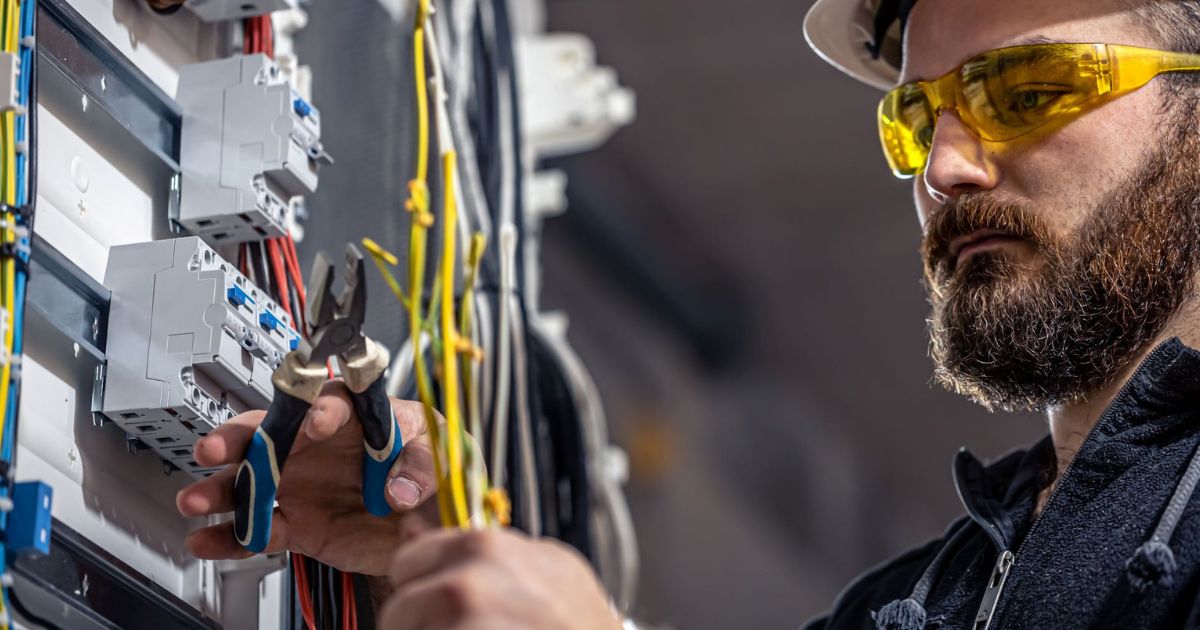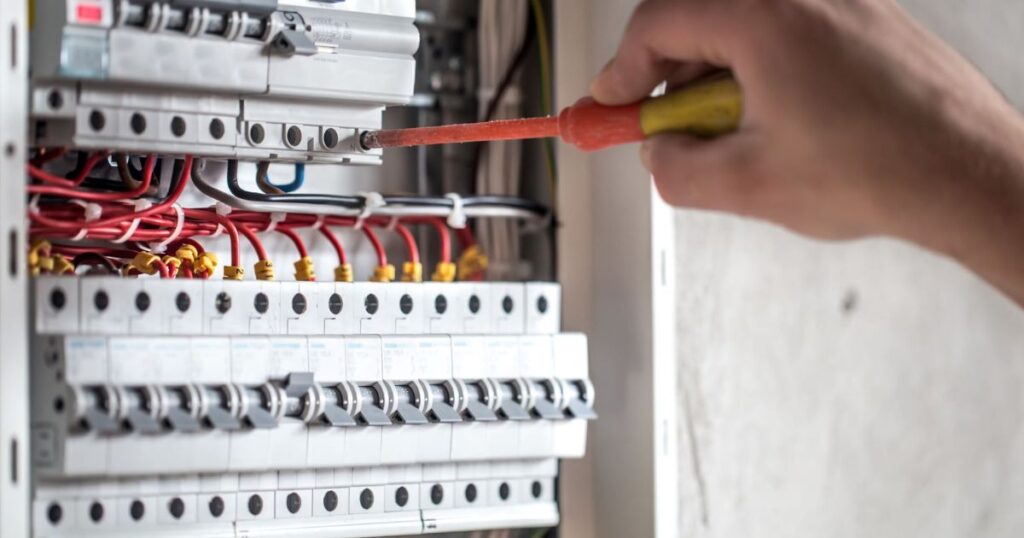Electrical emergencies can strike at any time, usually catching homeowners off guard. As such, addressing these problems swiftly is vital to ensure the safety of the family and property. From sudden power outages to sparking outlets, these issues demand the attention of a professional. While some minor problems might seem manageable, attempting DIY electrical repairs can lead to severe hazards, including electrocution and fire. This is why knowing when to call an emergency electrician is essential.
Read on to learn the common household issues that need an emergency electrician.
Switchboard Problems: The Heart of Your Home’s Electrical System
The switchboard controls the distribution of electricity throughout your home. Some common emergencies associated with these issues include:
- Overloaded circuits: If the switchboard is outdated or the home is drawing more power than it can handle, circuits may trip frequently or fail altogether.
- Burning smells: A burning smell from the switchboard is a sign of overheating wires or faulty components, which requires immediate attention.
- Sparking or buzzing sounds: These are indicators of loose connections, which can escalate into dangerous electrical fires.
Switchboards are highly technical, and any attempt to tamper with them can lead to severe accidents. Therefore, when dealing with common electrical emergencies homeowners face, including switchboard problems, it’s crucial to prioritize hiring a licensed electrician with experience and the right tools for the job. They can upgrade the switchboard to meet modern demands and ensure compliance with safety standards.
Kitchen Electrical Hazards: High-Use Appliances at Risk
Kitchens are hot zones for electrical issues due to the high energy demands of appliances like refrigerators, ovens, and microwaves. Some common problems include:
- Faulty outlets: If an outlet stops working or sparks when plugging in an appliance, it could indicate loose wiring or internal damage.
- Tripping circuit breakers: Overloaded circuits in the kitchen are common due to multiple appliances running simultaneously.
- Malfunctioning lighting fixtures: Flickering lights or dead bulbs might result from faulty wiring in the kitchen ceiling.

These issues can disrupt daily activities and pose safety risks, especially in a room where water and electricity frequently coexist. An experienced electrician can quickly resolve these hazards and ensure the kitchen is a safe space.
Bathroom Electrical Safety: Dealing With Water and Electricity
Bathrooms present unique electrical challenges due to the proximity of water, which significantly increases the risk of electrocution. Some emergency issues include:
- Defective Ground Fault Circuit Interrupters (GFCIs): These outlets are designed to prevent shocks but can fail over time, leaving the home vulnerable.
- Flickering vanity lights: Water exposure or poor wiring in bathroom light fixtures can cause lights to malfunction.
- Exhaust fan malfunctions: If the fan fails or emits a burning odor, it could signal overheating or worn-out wiring.
Professionals have the expertise to handle these high-risk environments and can install or repair equipment with water-resistant features to enhance safety.
Outdoor Electrical Issues: Risks Beyond the Walls of Your Home
Outdoor areas are prone to electrical emergencies due to exposure to weather conditions and wildlife interference. Some examples include:
- Exposed or damaged wiring: Wires can deteriorate over time or be damaged by animals, creating shock hazards.
- Non-functioning outdoor lighting: Faulty wiring or corroded connections can cause porch or garden lights to fail.
- Electrical equipment failures: Pool pumps, electric grills, and other outdoor appliances are susceptible to short circuits if improperly maintained.
Addressing outdoor electrical issues requires specialized tools and knowledge of safety regulations. A qualified electrician can repair outdoor wiring and install weatherproof solutions to prevent future emergencies.
DIY Electrical Repairs: The Hidden Dangers
Attempting to fix electrical problems without professional help can result in dire consequences. In some cases, DIY electrical work can lead to the following:
- Increased fire risks: Faulty installations or repairs can cause overheating and electrical fires.
- Severe injuries: Without proper knowledge, even minor mistakes can result in electrocution or burns.
- Code violations: DIY work may fail to comply with local electrical codes, leading to fines and increased liability.

Licensed electricians undergo rigorous training and possess the tools and expertise necessary to handle emergencies safely. They also ensure compliance with building and electrical codes, providing peace of mind and reducing long-term risks.
Preventative Measures to Reduce Electrical Emergencies
While emergencies can’t always be predicted, several proactive steps can minimize the risk. These include:
- Schedule routine inspections: Periodic checks by a licensed electrician can identify potential issues before they escalate.
- Upgrade outdated systems: Old wiring, switchboards, and outlets should be replaced to meet current safety standards.
- Invest in surge protection: Installing whole-house surge protectors can safeguard your appliances and devices from power surges.
- Educate household members: Teach family members how to recognize early warning signs, such as flickering lights or tripped breakers.
With these preventive measures in place, homeowners can prevent some common household issues that require an emergency electrician.
Conclusion
Electrical emergencies pose significant risks to both safety and property, making it essential to address them immediately. Rooms such as kitchens, bathrooms, and outdoor spaces experience unique challenges that demand specialized knowledge. A licensed electrician can diagnose and resolve these issues with precision, ensuring your home remains safe and functional.
Lastly, by keeping the information mentioned above in mind, homes can adhere to safety standards, ensuring long-term solutions and peace of mind.


More Stories
Practical and Creative Uses for Plastic Sheets in Your Home Projects
The Benefits of Regular Plumbing Inspections for Homeowners
Stylish and Efficient: Choosing the Right Design for Your Single Panel Radiator